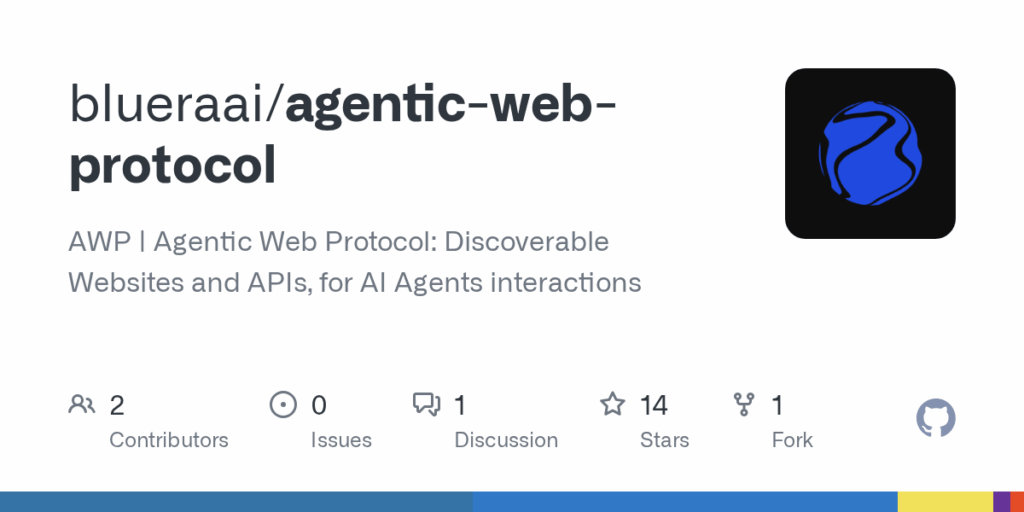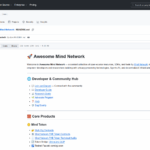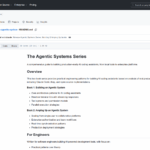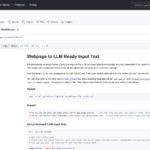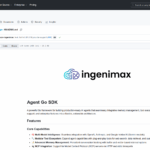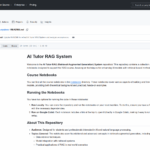agentic web protocol
Basic Information
This repository defines the Agentic Web Protocol (AWP), a specification and Python tooling to make websites and APIs discoverable and reliably usable by AI agents. It provides a web page protocol based on optional ai-* HTML attributes that annotate meaningful and interactive elements with descriptions, available interactions, prerequisites, next features and states. It provides an API protocol that standardizes a /ai-handshake endpoint which returns an OpenAPI-compliant documentation of the hosting API. The project also distributes a Python AWP tool and an optional Universal Tool integration that parse annotated HTML or call /ai-handshake to produce machine-readable documentation in YAML or JSON. The README includes installation instructions, usage examples, a playground, and cross-platform guidance for cloud, desktop, web and mobile environments.

